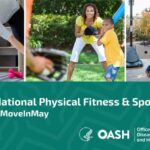Building a Community Roadmap to Health and Equity in Jackson, Mississippi
By Beneta D. Burt, Executive Director, Mississippi Roadmap to Health Equity
The Mississippi Roadmap to Health Equity, a community-run organization that seeks to generate and mobilize resources, utilizes our expertise to improve how community institutions operate and, at the same time, protect and promote the health of community members.
By working with everyday institutions that touch everyone’s life, we can advocate for changes that are good for the bottom line and promote better health equity in Jackson. By building important relationships, we can ensure community institutions support the community’s efforts to be healthy—and are true partners in making the healthy choice the easy choice.
How we started
With primary support from the W.K. Kellogg Foundation, Mississippi Roadmap’s work began in 2003 with a series of sessions aimed at addressing why African-Americans are sicker and die sooner than their peers.
Through concept mapping, we identified the many factors that contribute to poor health. And, just one year later, nearly 200 community residents, members of the Mississippi Roadmap Community Steering Committee (CSC) and National Advisory Board members created ideas to improve community health outcomes. Participants laid out a “roadmap” for a healthy present and an even healthier future, especially for the economically-disadvantaged citizens of Jackson. While the state of affairs regarding the health of African-Americans was central to the purpose of the conference, the overall goal was to develop a community-driven health movement that fostered equity, justice and respect for all people.
Initially we set out to improve access to fresh and affordable produce and safe and affordable places for people to exercise – there were simply no grocery stores or farmers’ markets in the area and no price-conscious fitness centers.
To solve these problems, we re-purposed a shuttered grocery store to include:
- A state-of-the-art adult fitness center;
- An indoor farmers’ market;
- A children’ fitness area that accommodates pre-school through teens;
- Space for healthy cooking classes, in partnership with dietitians from The University of Mississippi Medical Center;
- A venue for senior citizens to congregate;
- An affordable rental facility for community events and a venue to convene community conversations; and
- A Technology Learning Lab that serves 4th and 5th grade students who participate in our afterschool program.
Additionally—in an effort to promote healthy eating habits, to demonstrate to city kids where good food comes from, and to encourage them to eat more fruits and vegetables—we developed 15 garden-based projects in elementary/middle schools in the Mississippi Delta, in Jackson, and on the Gulf Coast.
How we do it
A Community Steering Committee guides our work. An executive director, together with a staff of six, provides day-to-day management. CSC members each have their own “community constituents” who they work with and/or advocate for. These community constituents range from neighborhood associations to church groups to social justice and advocacy organizations—they run the full gamut of the community.
The diversity of ages, backgrounds, interests, professions, and community connections of the CSC members provide access to the pulse of each segment of Jackson and provides a voice for their issues, ideas, needs and concerns.
Going Forward
We are scaling up our work to focus even more on promoting the health and well-being of children by creating job training programs targeted to non-college bound high school graduates and other out of- school youth.
To do so, we began the process of becoming an affiliate of the National Urban League—this vital partnership, which was fully formed in February 2018, will promote employment equity.
Unemployment among teenagers and young adults are major issues in Jackson, especially during the summer, while unemployment among out-of-school youth is equally concerning. In 2016, approximately 600 Jackson high school graduates did not attend college and most had no plans or employment prospects.
In an effort to close this gap, Roadmap entered into a Memorandum of Understanding (MOU) with the City of Jackson in to acquire a city-owned, soon-to-be-shuttered golf course and club house that we will now use to develop a job training program in golf course management designed to develop landscaping-related employment opportunities.
Out-of-school youth will be recruited during the course of the year and enrolled in a GED program provided by Hinds Community College prior to enrolling in the job training program. We will incentivize participant training to encourage consistent attendance and attainment of GEDs prior to transitioning to the program. Additionally, a job developer will work with non-college bound high school seniors in March of each year to prepare them for entering the training program.
Upon completion of classroom and on-the-job training activities, and with Roadmap’s oversight, some participants will bid on landscaping management contracts with local public school districts. Successful bids will result in permanent, unsubsidized employment for participants.
To leverage these relationships and also improve physical fitness, golf pros will develop a program for integration into the curriculum of the local elementary school, which is located next to the golf course. And, a concurrent physical fitness program will be incorporated into the program. Eventually, we hope these plans and resources can benefit the health of the entire community.
Partnerships are Vital
Any measure of success that we have achieved can be attributed to the long-term support from the W. K. Kellogg Foundation, and to the large group of public and private sector members whose actions demonstrate that community partnerships play an integral part in achieving improved health outcomes. We have the good fortune to have local chefs, hospitals and health professionals, church ministries, and community-academic partners involved.
Just one partnership example: we are the grant recipient in partnership with the Mississippi State Department of Health and the University of Mississippi Medical Center (UMMC). For this grant, the Department of Health provides staff resources and UMMC provides the required match for the project, which allows us to create a culture of breastfeeding among young women in Jackson.
